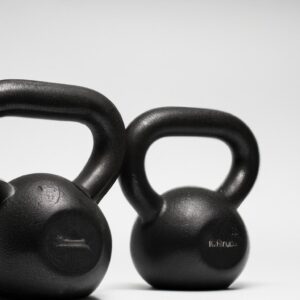**”Navigating Pregnancy: A Comprehensive Guide to Safe and Effective Prenatal Strength Training”**
# Navigating Pregnancy: A Comprehensive Guide to Safe and Effective Prenatal Strength Training
Pregnancy is a transformative journey that brings both excitement and challenges. As your body changes and adapts to nurture new life, maintaining a fitness routine can help manage these changes. Prenatal strength training is not only safe but also beneficial for both the mother and the developing baby when done correctly. This blog post will guide you through the principles of safe and effective prenatal strength training, covering essential nutrition tips, exercise advice, and the myriad health benefits associated with staying active during pregnancy.
## Understanding Prenatal Strength Training
### What is Prenatal Strength Training?
Prenatal strength training involves exercises specifically designed for pregnant women, focusing on building strength, improving flexibility, and preparing the body for labor and recovery postpartum. These exercises can include bodyweight movements, resistance training with light weights, and stability exercises that engage the core.
### Why is It Important?
Strength training during pregnancy can help alleviate common discomforts like back pain, support healthy weight gain, and improve overall physical and mental well-being. It also prepares your body for the physical demands of childbirth and caring for a newborn.
## Nutrition Tips
### Balanced Diet for Expecting Mothers
A well-rounded diet is vital for both you and your baby. Focus on incorporating a variety of whole foods, including:
– **Fruits and Vegetables**: Aim for a colorful plate filled with different nutrients.
– **Lean Proteins**: Include sources like chicken, fish, legumes, and nuts to support muscle growth.
– **Whole Grains**: Opt for whole grain bread, brown rice, and quinoa for sustained energy.
– **Healthy Fats**: Avocados, olive oil, and fatty fish like salmon are excellent choices for brain development.
### Hydration Matters
Staying hydrated is crucial during pregnancy, especially when engaging in physical activity. Aim to drink at least 8-10 glasses of water a day, and increase your intake if you are exercising or if the weather is hot.
### Nutritional Supplements
Consult your healthcare provider about prenatal vitamins, especially folic acid, iron, and calcium, to ensure both you and your baby are getting essential nutrients.
## Exercise Advice
### Consult Your Healthcare Provider
Before starting any exercise program during pregnancy, it’s essential to consult your healthcare provider. They can advise you on what activities are safe based on your health history and pregnancy progression.
### Choose Safe Exercises
Focus on low-impact, safe exercises that help strengthen major muscle groups without putting undue stress on your body. Some recommended exercises include:
– **Bodyweight Squats**: Strengthen your legs and glutes, crucial for labor.
– **Modified Push-ups**: Support upper body strength without straining your abdomen.
– **Resistance Band Work**: Engage multiple muscle groups with minimal risk of injury.
– **Pelvic Floor Exercises**: Strengthen the pelvic floor to support labor and recovery.
### Listen to Your Body
It’s normal to experience fatigue and discomfort during pregnancy. Always listen to your body. If something feels wrong, stop the exercise and consult your healthcare provider. Modify exercises as necessary to accommodate your changing body.
## Health Benefits
### Physical Benefits
Engaging in prenatal strength training can offer numerous physical benefits, including:
– **Improved Muscle Tone**: Helps maintain strength and endurance.
– **Reduced Back Pain**: Strengthening core and back muscles can alleviate discomfort.
– **Enhanced Posture**: Stronger muscles support better posture, which can be affected by the growing belly.
– **Easier Labor**: Improved strength and endurance can lead to a smoother labor process.
### Mental Health Benefits
Exercise has well-documented mental health benefits, especially during pregnancy. Regular physical activity can help reduce anxiety, improve mood, and enhance overall well-being. The endorphins released during exercise can contribute to a positive mindset, making your pregnancy journey more enjoyable.
### Better Sleep Quality
Prenatal strength training can help improve your sleep quality, a significant challenge for many pregnant women. Regular physical activity can reduce insomnia and help you feel more rested.
## Conclusion
Navigating pregnancy with safety and effectiveness in mind is essential for both you and your baby. Embracing prenatal strength training, combined with a balanced diet and proper hydration, can yield significant physical and mental health benefits. By consulting your healthcare provider, listening to your body, and focusing on safe, effective exercises, you can enjoy a healthier and more empowering pregnancy experience. Remember, staying active during this time is not just about fitness; it’s about preparing your body for the incredible journey of motherhood ahead.















Post Comment